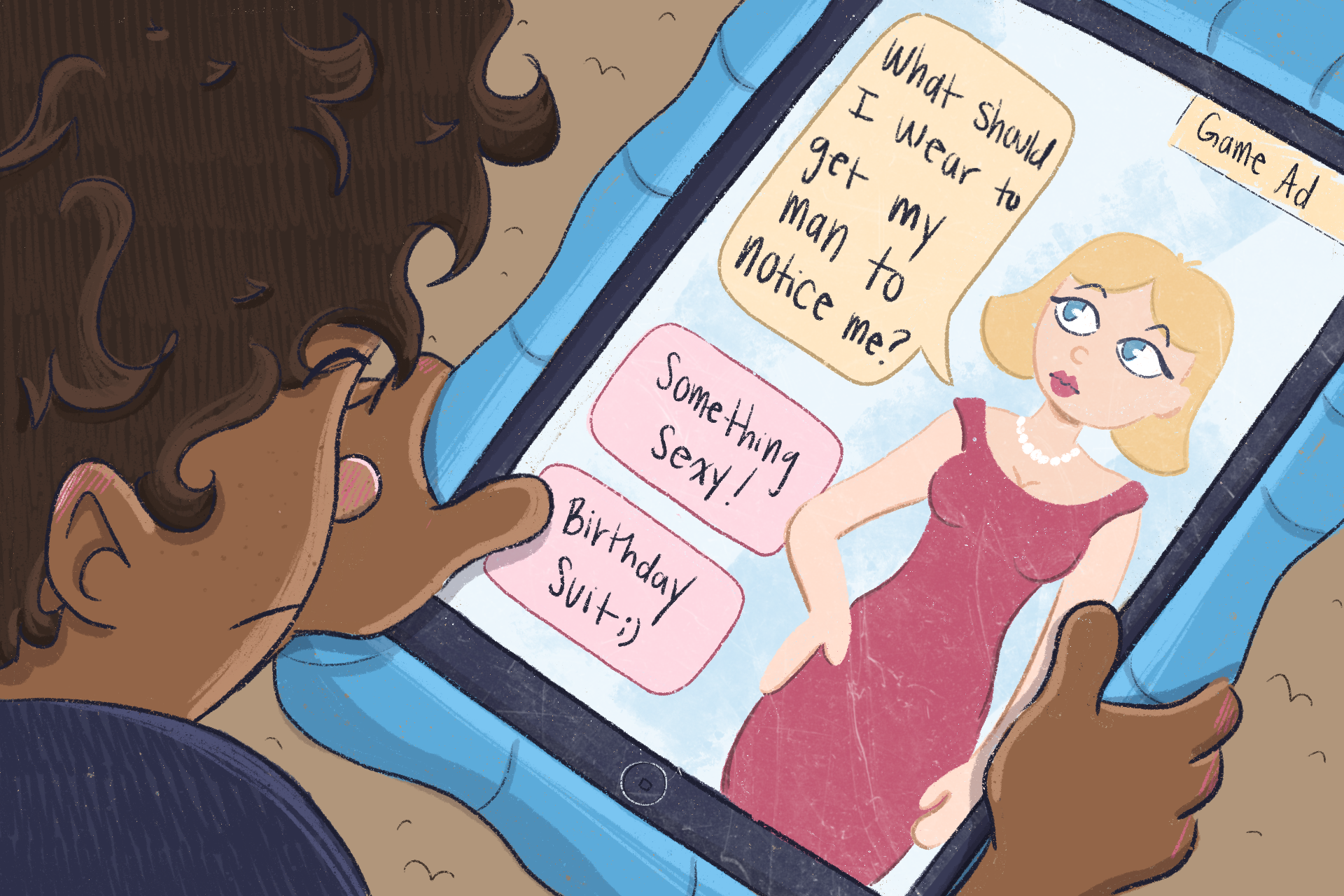Picture this: a wailing toddler kicking at the restaurant table refusing to eat their food while onlookers shake their heads. The natural solution is to hand them a tablet and sigh in relief once their eyes are glued to the screen without any more tears.
64% of s 3-4-year-olds in the U.S., and 81% of those ages 5-8 play with tablets, according to Pew Research Center. From strained parental relationships to cognitive developmental delays, tablet use in young children has a plethora of unhealthy effects. Most infamous is the iPad kid phenomenon where tablets pacify toddlers during outbursts. Lazy parenting replaces discipline with distractions, with many TikToks poking fun at millennial parents who quiet down their children with too much screen time and little social interaction.
One of the most concerning side effects of tablet and smartphone addiction is the freedom for children to consume unsupervised gaming content while playing games. Though parents may be aware of what games their children are playing, many underestimate the number of ads their children see. Such ads are notorious for marketing unhealthy spending habits and sexually suggestive content despite the actual app being rated E for Everyone.
Concerned parents have taken to Reddit and Apple forums to vent about inappropriate gaming advertisements presented to their children, displaying the objectification of women in clad outfits or in the nude. One Reddit user posted a video clip from her child’s Disney game depicting a teacher with enlarged breasts where the goal of the game was to shoot as many targets in order to undress her. After this ad, another one appeared encouraging players to shoot a man hanging from a noose.
The mobile dress-up app, Everskies, advertises a game called Project Makeover with advertisements depicting “ugly” women getting cheated on. Players are encouraged to give her a makeover to win back her boyfriend, cementing unhealthy beauty standards and promoting male validation at a young age. The ad also depicts a man playing the game with the option to help the girl or call her stupid, further normalizing misogyny. Even worse is that Project Makeover is rated ages 12+ . Another game called Time Princess depicts a storyline where users ask their boss out on a dating app. 12 year olds should not be exposed to ads romanticizing problematic work relationships.
The King’s Choice is also frequently advertised on Everskies. Although rated 12+, its title reveals everything ; players are subject to being a concubine, slapped and hit by the King and involved in schemes like pretending to be pregnant to win his affection. The infamous game Episode (rated 12+) is even more raunchy, displaying ads where users can choose to take showers with characters. The app is free, so users can access an array of custom stories from other players, leaving unlimited exposure to sexual content.
While it’s clear game developers and the Federal Trade Commission need to increase surveillance over advertising, parents who leave their children unsupervised to alleviate temper tantrums with mobile games are also responsible.
Media literacy and content supervision is the key to preventing iPad children from engaging with sexist and explicit mobile game ads. Parents need to ensure that the games their children download also have appropriate ads while also teaching their children to notify them when they see something inappropriate.
Gen-Z has pledged to reverse the constant need for instant stimulation in alpha children, aiming to raise a new generation of children encouraged to seek our creative fulfillment when bored. Reading books, playing board games, doing arts and crafts and watching educational television shows are alternatives to handing toddlers a phone. If using mobile devices in public, parents should invest in toddler-friendly tablets or content management apps where their children can only download apps they vet.
Future generations of parents and children should embrace the beauty in open discussions, physical activity and dismantling the use of iPads as a nanny. Values should be instilled by parents rather than game developers, creating generations of informed, ethical and curious thinkers.

















